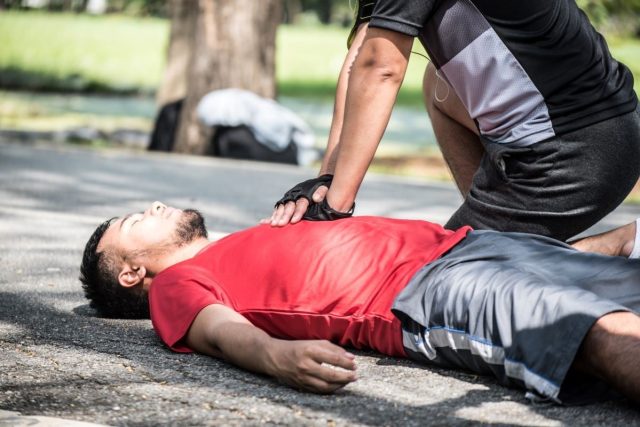All individuals have higher survival with bystander CPR, but the association is weakest for Blacks and women
By Elana Gotkine HealthDay Reporter
FRIDAY, Aug. 9, 2024 (HealthDay News) — Bystander cardiopulmonary resuscitation (CPR) is associated with higher survival for all individuals with out-of-hospital cardiac arrest, but the association is weakest for Blacks and women, according to a study published online Aug. 7 in Circulation.
Paul S. Chan, M.D., from Saint Luke’s Mid America Heart Institute in Kansas City, Missouri, and colleagues identified 623,342 nontraumatic out-of-hospital cardiac arrests during 2013 to 2022 within a large U.S. registry and examined whether there was a differential association between bystander CPR and survival outcomes by patients’ sex and race and ethnicity.
The researchers found that 9.3 percent of the patients survived to hospital discharge. In each race and ethnicity group, bystander CPR was associated with higher survival, although the association for bystander versus no bystander CPR was highest in individuals who were White and native American (adjusted odds ratios, 1.33 and 1.40, respectively) and lowest in those who were Black (adjusted odds ratio, 1.09). For Hispanics, Asians, and those of unknown race, the adjusted odds ratios for bystander versus no bystander CPR were 1.29, 1.27, and 1.31, respectively. In both sexes, bystander CPR was associated with higher survival, with a higher association with survival for men than women (adjusted odds ratios, 1.35 and 1.15, respectively). Across neighborhood race and ethnicity and income strata, the weaker association of bystander CPR in Blacks and women was consistent.
“Whether or not this result is because the quality of bystander CPR is lower in these two patient groups deserves further study to address disparities in care and ensure health care equity,” the authors write.
Copyright © 2024 HealthDay. All rights reserved.



















